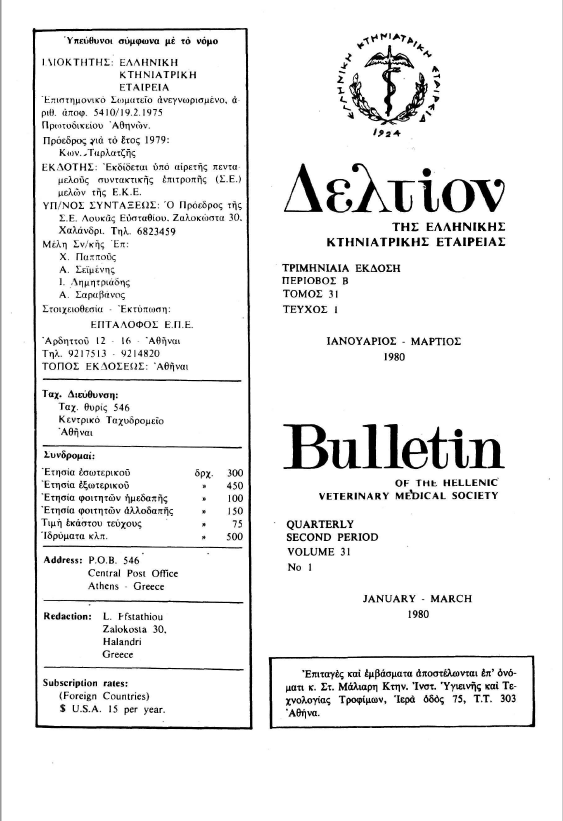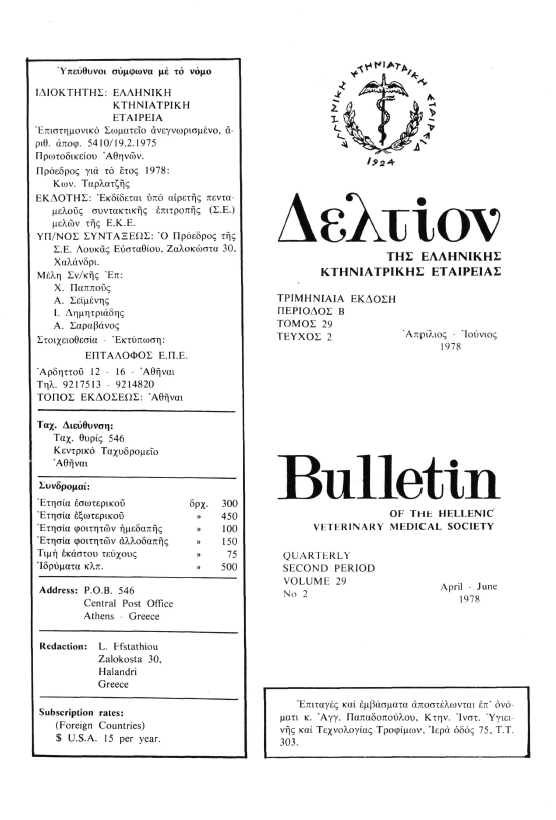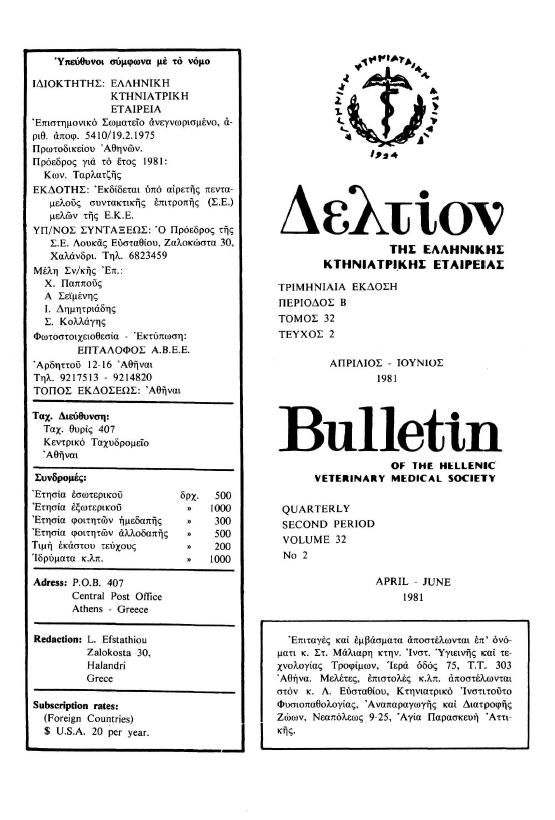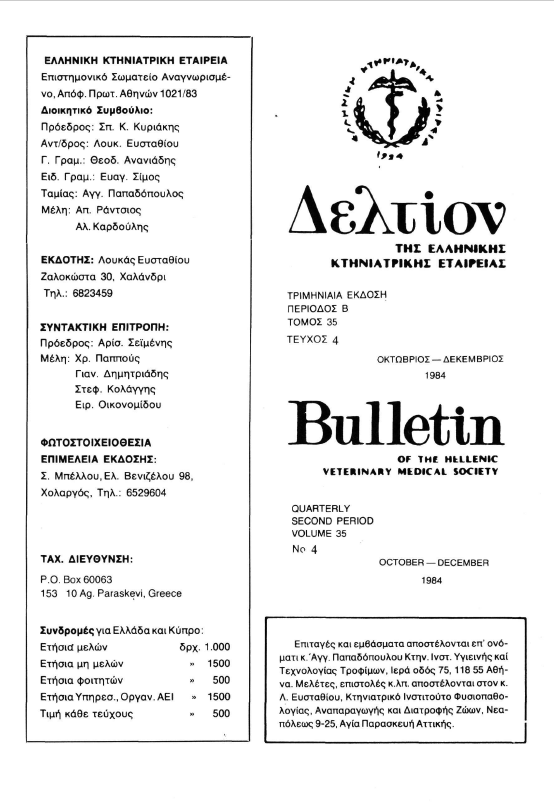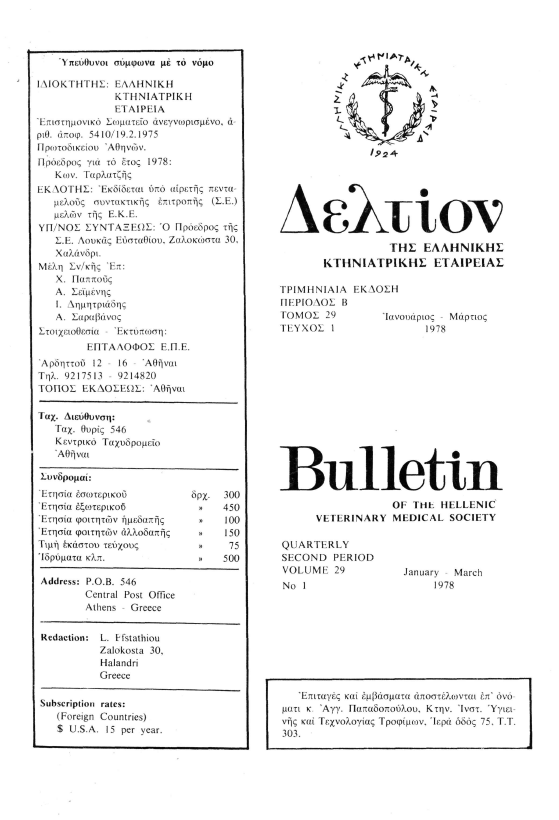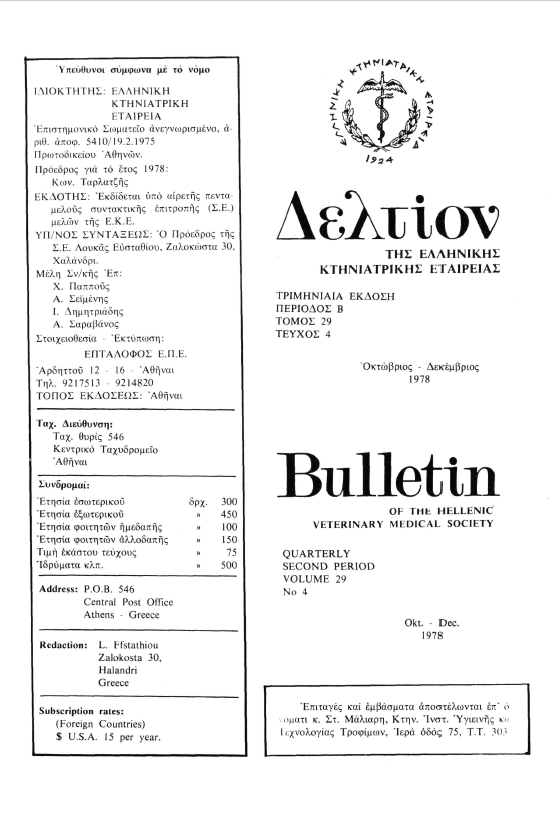Hematological and Serological diagnosis of Enzootic Bovine Leukosis
Abstract
45 cows of two heards with serological evidence of the disease were examined by using the serological and hematological testings at the same time. In a previous survey only there two herds had shown serological evidence of enzootic bovine leukosis. From these 45 animals 6 were found positive after hematological testing and 5 after serological testing. 3 cows negative after serological testing were found positive after the hematological testings (37,5%), 2 cows negative after the hematological testing were found positive after the serological testing (25%) and the other 3 cows were positive to both the serological and hematological testings (37,5%). The specific reagents for the immunodiffusion test that is agar, antigen and hyperimmune antisera were kindly supplied by Behringwerke A.E. Germany and we take the opportunity to express our warmest thanks for this Firm.
Article Details
- How to Cite
-
ΔΗΜΗΤΡΙΑΔΗΣ I., ΣΕΪΤΑΡΙΔΗΣ K., & ΠΑΠΑΔΟΠΟΥΛΟΣ Ε. (2019). Hematological and Serological diagnosis of Enzootic Bovine Leukosis. Journal of the Hellenic Veterinary Medical Society, 31(1), 25–30. https://doi.org/10.12681/jhvms.21431
- Issue
- Vol. 31 No. 1 (1980)
- Section
- Articles

This work is licensed under a Creative Commons Attribution-NonCommercial 4.0 International License.
Authors who publish with this journal agree to the following terms:
· Authors retain copyright and grant the journal right of first publication with the work simultaneously licensed under a Creative Commons Attribution Non-Commercial License that allows others to share the work with an acknowledgement of the work's authorship and initial publication in this journal.
· Authors are able to enter into separate, additional contractual arrangements for the non-exclusive distribution of the journal's published version of the work (e.g. post it to an institutional repository or publish it in a book), with an acknowledgement of its initial publication in this journal.
· Authors are permitted and encouraged to post their work online (preferably in institutional repositories or on their website) prior to and during the submission process, as it can lead to productive exchanges, as well as earlier and greater citation of published work.

